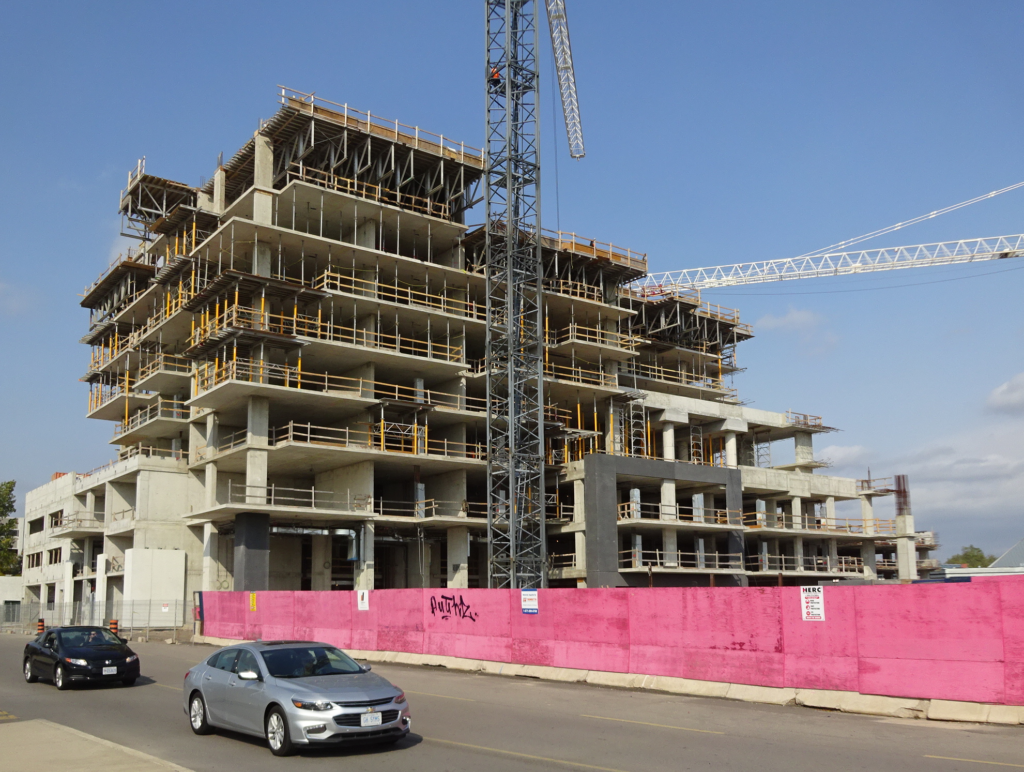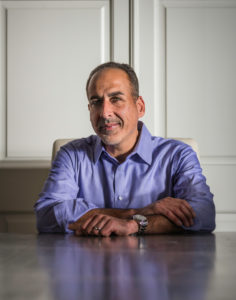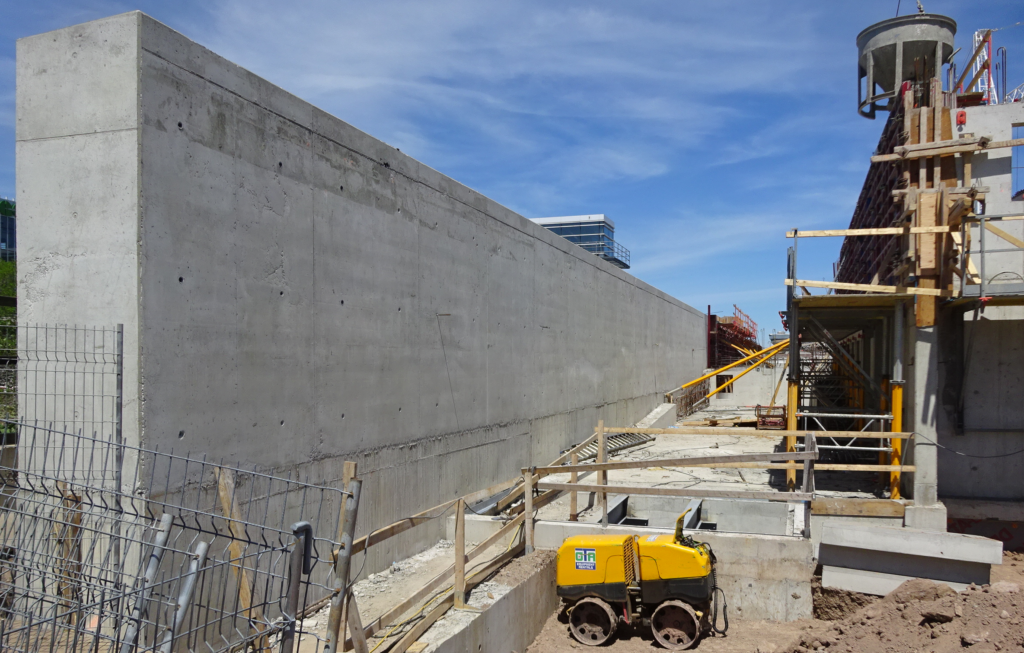 By Pepper Parr
By Pepper Parr
October 24, 2016
BURLINGTON, ON
Vince Molinaro, president of the Molinaro Group had a bunch of people over for lunch last week – 40 of them to be exact – mostly fellow developers who can pack a lunch, if you know what I mean.
They were on an Ontario Home Builders Association tour of developments that were part of what have come to be known as hubs – places where different forms of transportation come together: Go trains and buses, transit, cars, bicycles and those who choose to walk.

Burlington has identified four different locations for mobility hubs. while they haven’t officially determined which location they will start with the Molinaro Group has started construction on their five building Paradigm project.
Municipalities are looking at the idea of making these hopes the focus of development opportunities.
Burlington has identified four such hubs.
While the city was doing its identification thing – the Molinaro group was digging a big hole in the ground and are not at the tenth floor of the west building of what is going to be a five structure project with an average height of 20 storeys just a bit over a stone’s throw from the GO station on Fairview east of Brant Street

The West tower of the five building Paradigm project has reached the tenth floor level. They are at the 85% SOLD level on two of the five towers that will average 20 storeys each.
The association says the population of the Greater Toronto and Hamilton Area is expected to reach more than 10 million by 2041, and most of the growth — 79 per cent — will take place outside Toronto: in York, Durham, Peel, Halton and Hamilton.
This is a “historic moment for city building,” the association says, with an anticipated $32 billion in rapid transit expenditures over the next 10 to 15 years.
The 40 developers, members of the association and other interested people set off on a daylong excursion last Thursday that started in Port Credit before heading to Paradigm Condos adjacent to the Burlington GO station. From there, they continued to Hamilton’s West Harbour.

Vince Molinaro – president of the Molinaro Group and a former president of the Ontario Home Builders Association
Molinaro, whose Molinaro Group is the developer of the Burlington condominium project, says mobility hubs around GO stations are rich with possibilities but bring unique challenges.
A mobility hub is a term used to describe housing and commercial intensification around transportation nodes, such as GO stations. It creates opportunities for commuters to get around without relying on automobiles. The hubs are seen as a way to help with gridlock.
Molinaro says the municipal government in Burlington has been supportive of his project because the developer and city planners are on the same page when it comes to housing intensification. But with the development being so close to the railway tracks, his company has had to deal with numerous requirements from CN.
We had to construct a five-foot-thick, concrete wall between the tracks and the towers to help protect residents in case of a derailment.

That is a five foot thick concrete crash wall that the railway authorities required between the development and the railway tracks.
The track also required a 30-metre easement that cannot be used for residential space. More liability insurance was required than normal because of the five-tower project’s proximity to the tracks. Rather than $10 million, they needed $100 million.
Despite all of that, he says, the development is proceeding well. Construction on the west tower has reached the 10th floor, and a late summer opening is planned for next year. Work has also started on two other towers.
About 85 per cent of the units in the first two towers have been sold, Molinaro says. The buildings vary in height, but average 20 storeys. The final two to be built will have commercial and office space along with residential.


















I just loved this reference in the article:
“We had to construct a five-foot-thick, concrete wall between the tracks and the towers to help protect residents in case of a derailment. More liability insurance was required than normal because of the five-tower project’s proximity to the tracks”.
I for one would never consider buying a condo or home that close to a train station…even if the trains only carried passengers. Wouldn’t it have made more sense using the nearby lands for industrial or commercial purposes?
I wonder if the Molinaro Group provides ear plugs and protective head gear to new homebuyers?
Perhaps we should have hired Molinaro to build the new Burlington Go Station, as at this rate the new hi-rise will be finished before they’ve finished the roof on the new station!